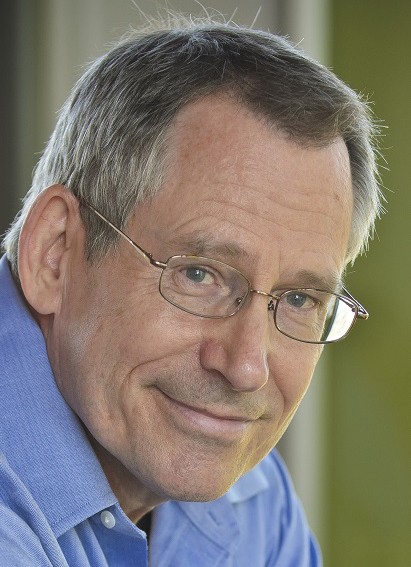Physicist to explain quantum entanglement in Bethe Lecture
By Linda B. Glaser
The quantum laws governing atoms and other tiny objects seem to defy common sense, and information encoded in quantum systems has weird, baffling properties like “quantum entanglement.”
Physicist John Preskill will explain quantum entanglement, and why it makes quantum information fundamentally different from information in the macroscopic world, in the spring Hans Bethe Lecture, April 10 at 7:30 p.m. in Schwartz Auditorium, Rockefeller Hall.
His talk, “Quantum Computing and the Entanglement Frontier,” will illuminate how exploiting quantum entanglement could help quantum computers solve otherwise intractable problems. This could have far-reaching applications to cryptology, materials and fundamental physical science.
Preskill is the Richard P. Feynman Professor of Theoretical Physics at the California Institute of Technology, and director of the Institute for Quantum Information and Matter at Caltech. He received his Ph.D. in physics in 1980 from Harvard, and joined the Caltech faculty in 1983.
“John Preskill has been a leader in the theoretical aspects of quantum computation for more than 20 years,” said event organizer Paul Ginsparg, Ph.D. ’81, professor of physics and of information science. “He’s also perfectly positioned to provide an overview of the significant experimental developments of the past five years, and to anticipate the practical progress we can expect over the next five to 10 years in this now rapidly developing field.”
Preskill’s career began in the fields of particle physics and cosmology, but in the 1990s he became intrigued by the possibility of solving otherwise intractable computational problems by exploiting quantum physics. He is especially interested in the ways our deepening understanding of quantum information and quantum computing can be applied to other fundamental issues in physics, such as the quantum structure of space and time.
As part of the Hans Bethe Lecture series, Preskill will give a physics colloquium, “Quantum Computing in the NISQ Era and Beyond,” April 8 at 4 p.m. in Schwartz Auditorium, and a LEPP theory seminar, “Simulating Quantum Field Theory with a Quantum Computer,” April 12 at 1 p.m. in Room 401 of the Physical Sciences Building.
The Hans Bethe Lectures, established by the Department of Physics and the College of Arts and Sciences, honor Bethe, Cornell professor of physics from 1936 until his death in 2005. Bethe won the Nobel Prize in physics in 1967 for his description of the nuclear processes that power the sun.
Linda B. Glaser is a staff writer for the College of Arts and Sciences.
Media Contact
Get Cornell news delivered right to your inbox.
Subscribe

